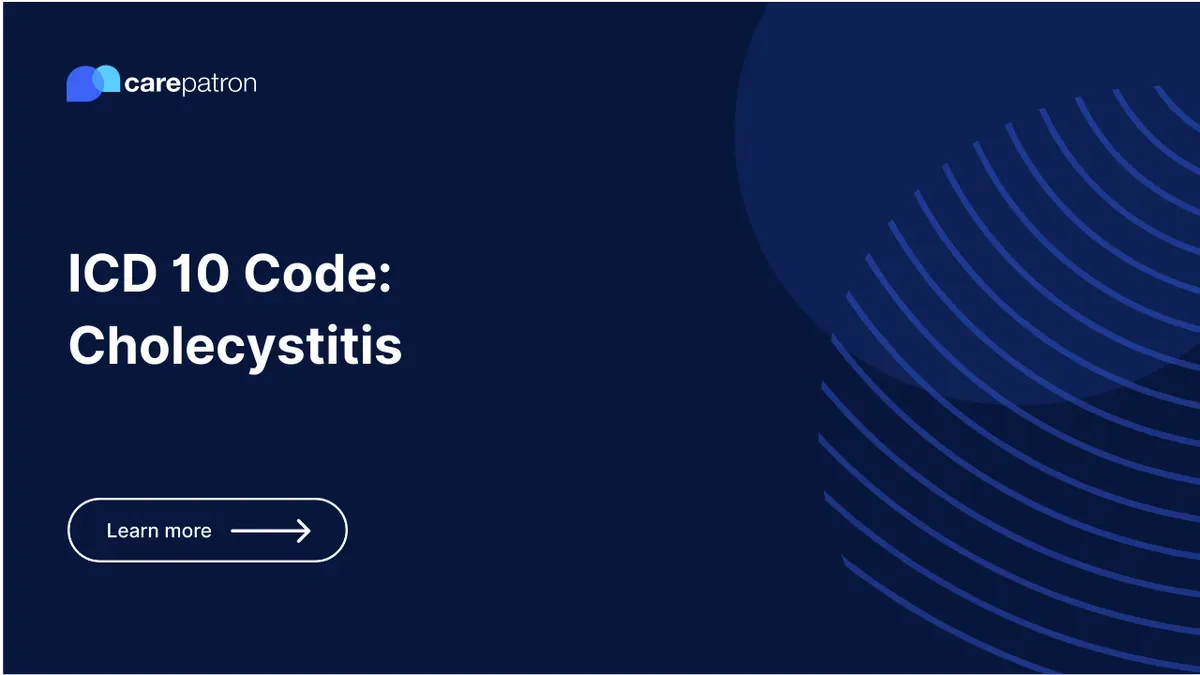
Cholecystitis ICD-10-CM Codes
Get insights on Cholecystitis ICD codes. Learn about standard codes, their clinical descriptions, billability, related synonyms, and unique FAQs.
Use Code
Commonly asked questions
K81.0 refers to acute cholecystitis, indicating a sudden onset of symptoms, while K81.1 represents chronic cholecystitis, which implies long-term gallbladder inflammation.
Unspecified in K81.9 means the documentation needs to provide more details to specify whether the cholecystitis is acute, chronic, or both.
Yes, in some cases, medication can be used to dissolve gallstones that are causing cholecystitis, but surgery is often recommended to prevent future episodes.
EHR and practice management software
Get started for free
*No credit card required
Free
$0/usd
Unlimited clients
Telehealth
1GB of storage
Client portal text
Automated billing and online payments
